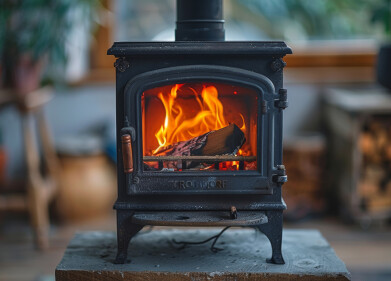Air clean up
Why is Home Pollution Worse at Christmas?
Jan 16 2017
The 25th of December is apparently the most poisonous day to spend indoors – and that’s got nothing to do with trouble with the in-laws. According to Professor Ian Colbeck, a leading authority on pollution from the University of Essex, Christmas Day suffers from the worst indoor pollution in the entire calendar.
This is due to lengthy cooking times, open fires, scented candles and even party poppers, Colbeck claims. In fact, he says that indoor pollution on this most celebrated of holidays is so bad that it’s comparable to spending the morning by the busiest roadway in London.
Tis the season to be smoggy
Celebratory events often lead to elevated levels of pollution. The widespread use of fireworks on occasions such as New Year’s Eve, Bonfire Night and the 4th of July (in America) regularly lead to poor air quality in the days afterwards, since the dazzling pyrotechnics rely on a cocktail of damaging chemicals and particles for their sparkle and fizz.
Indeed, the Hindu festival of Diwali caused no end of controversy last year. Practiced throughout India, the festival is a celebration of lights and predictably makes liberal use of fireworks in its revelry. In 2016, the Indian capital of New Delhi was plagued by dense clouds of smoke and fog in the days after the event, and as a reactive measure, the government have since banned the public sale of fireworks throughout Delhi and its surrounding environs.
But while the pollution caused by outdoor displays are a serious enough cause for concern, Christmas Day has largely gone ignored as a respiratory threat – despite the fact that indoor air pollution is up to three times more noxious than that found on the streets.
Contaminated Christmas
According to Professor Colbeck, the combination of polluting activities which occur with regularity in homes across Britain on Christmas Day could be seriously damaging to our lungs, and that escaping from the family homestead for a walk would be advisable.
“Christmas Day may well be the most toxic day of the year. It has the same effect as standing by the side of a busy London road for four hours, which is not something most people would choose to do,” he explained. “If you are asthmatic, you will become breathless, and this kind of air pollution could also raise people’s risk of cardiovascular disease.”
The chief causes of Christmas Day pollution are fourfold. Firstly, roasting meat and vegetables means prolonged use of the oven, which sends out excessive amounts of nitrogen dioxide into the household atmosphere. Secondly, the popular pastime of roasting chestnuts or other foodstuffs on an open fire increases the number of pollutants in the air. Thirdly, scented candles contain metallic particles and contribute to soot around the home, while finally party poppers are also an underestimated source of home air contamination.
“Party poppers are an often overlooked source of indoor air pollution. In Britain, they are classified as fireworks. While the impact of fireworks outdoors is well-documented, detailed knowledge of how it affects the indoor environment is lacking. Although party poppers are short-lived, they can generate large concentrations of ultrafine particles,” said Colbeck.
So next time you’re stuck at home on Christmas Day and wishing for an excuse to grab five minutes to yourself, you’ve now got one – simply saving your lungs.
Events
Jan 12 2025 Abu Dhabi, UAE
Carrefour des Gestions Locales de L'eau
Jan 22 2025 Rennes, France
Jan 29 2025 Tokyo, Japan
Feb 05 2025 Nantes, France
Feb 16 2025 Kampala, Uganda














